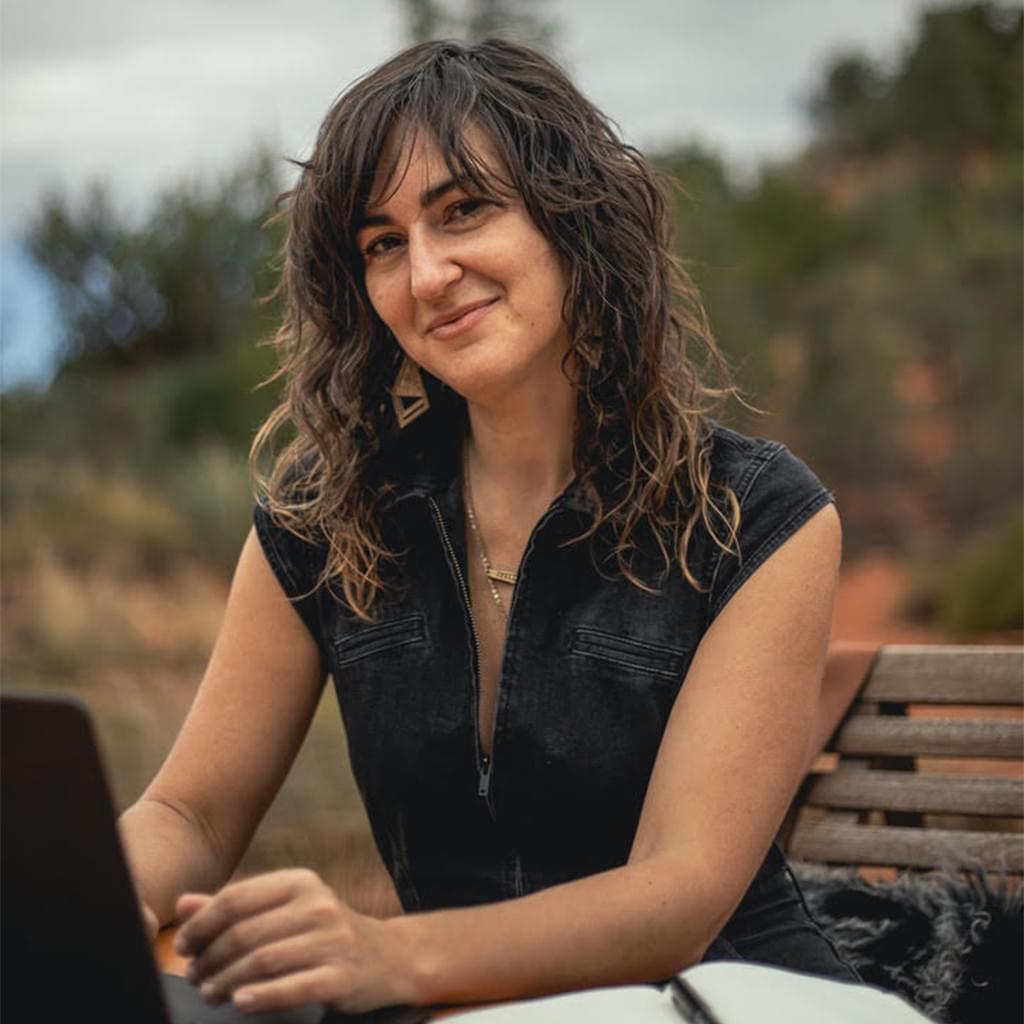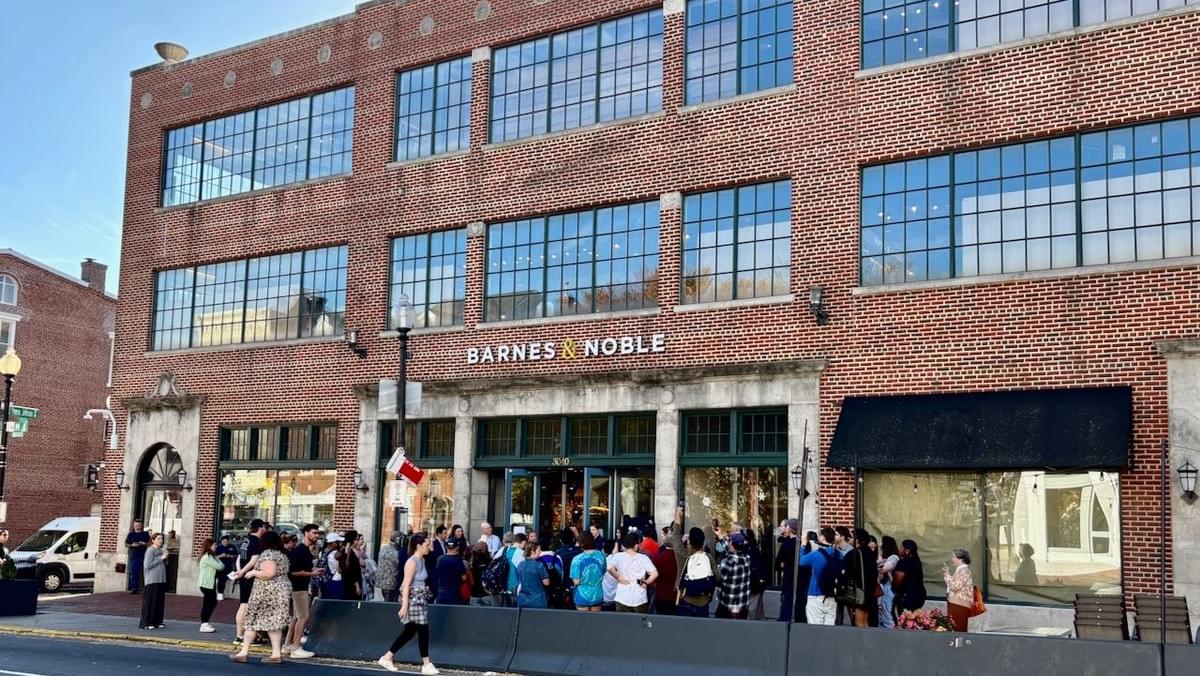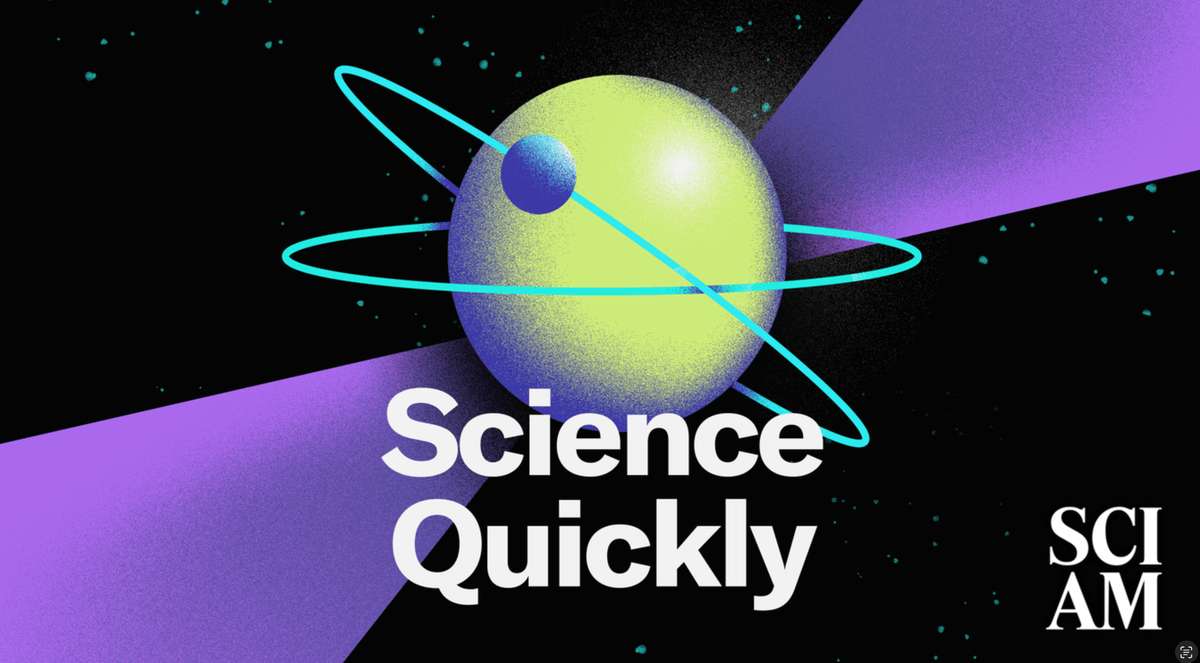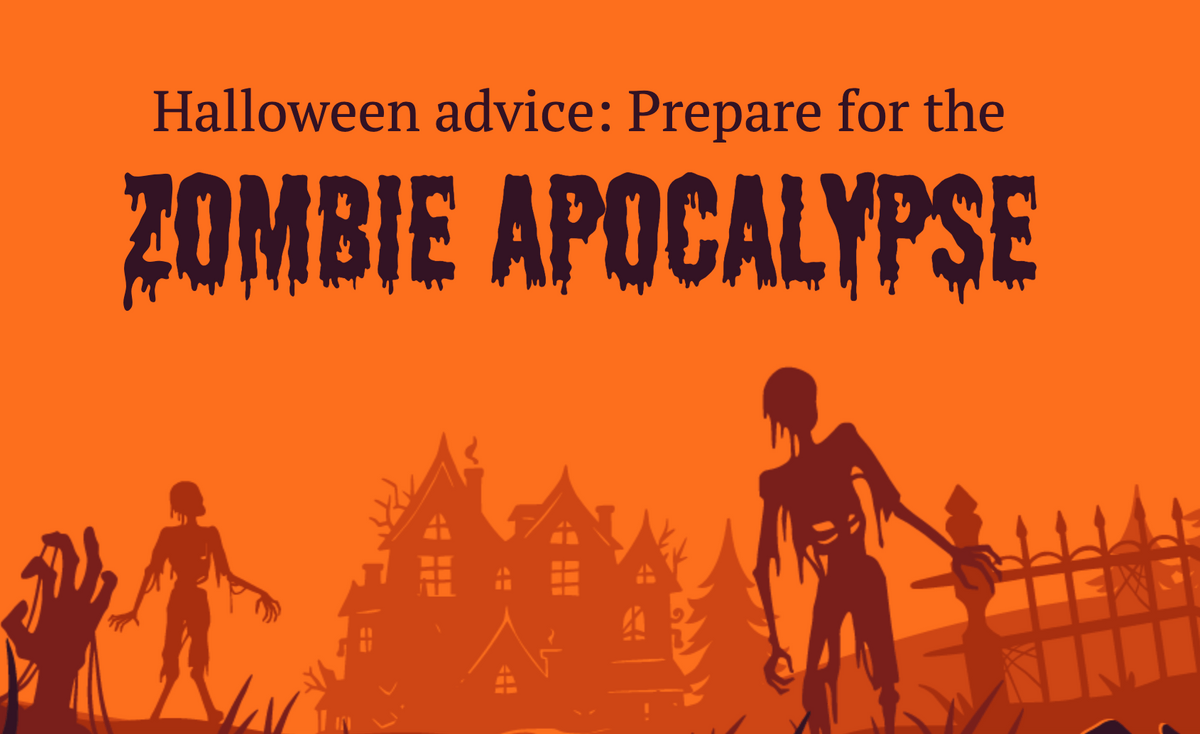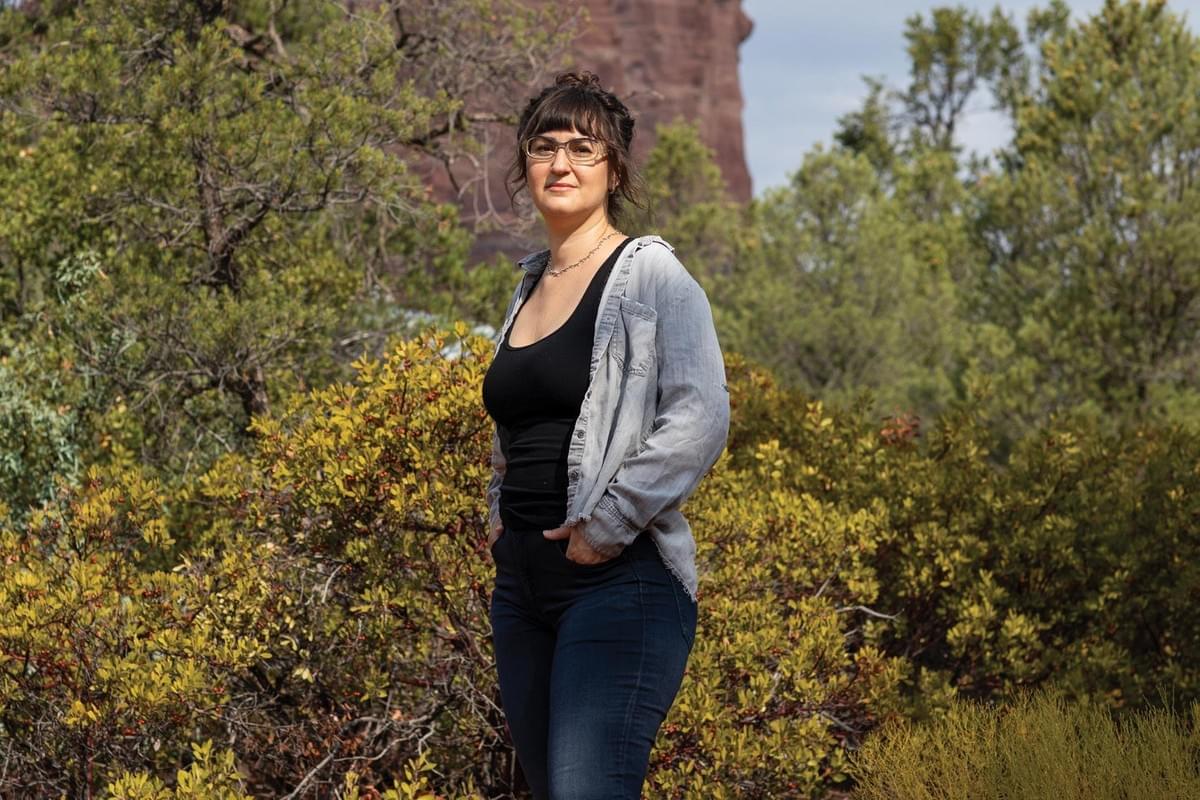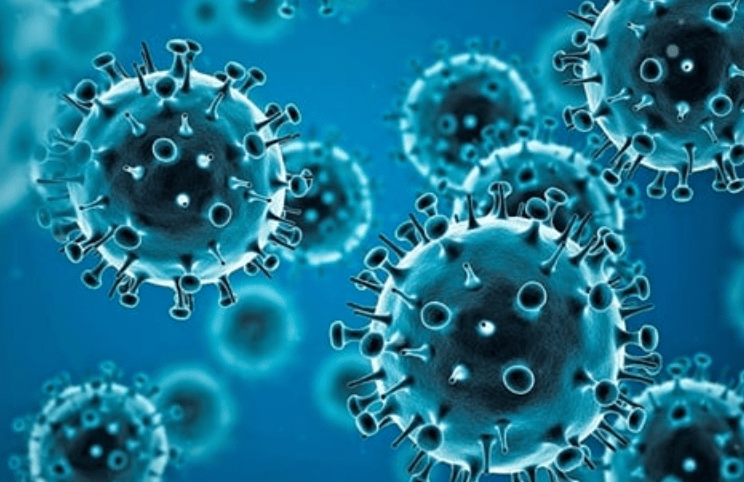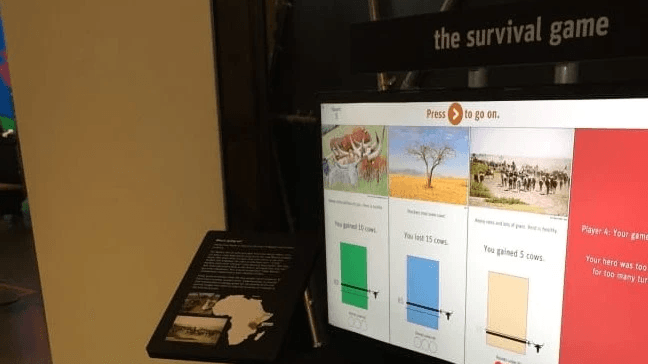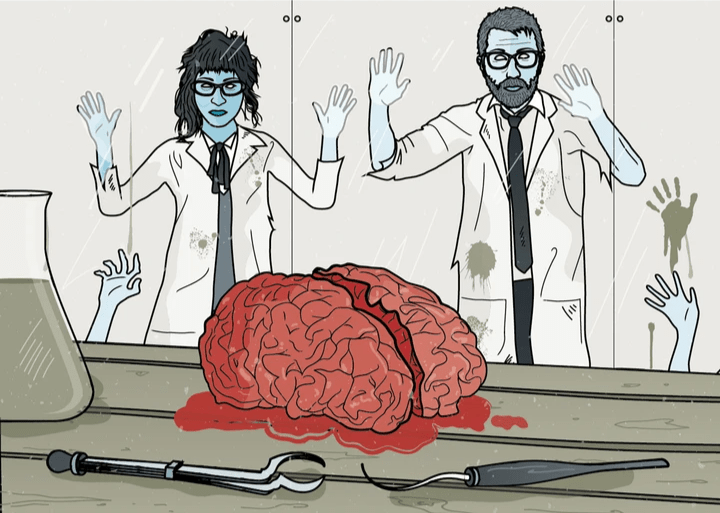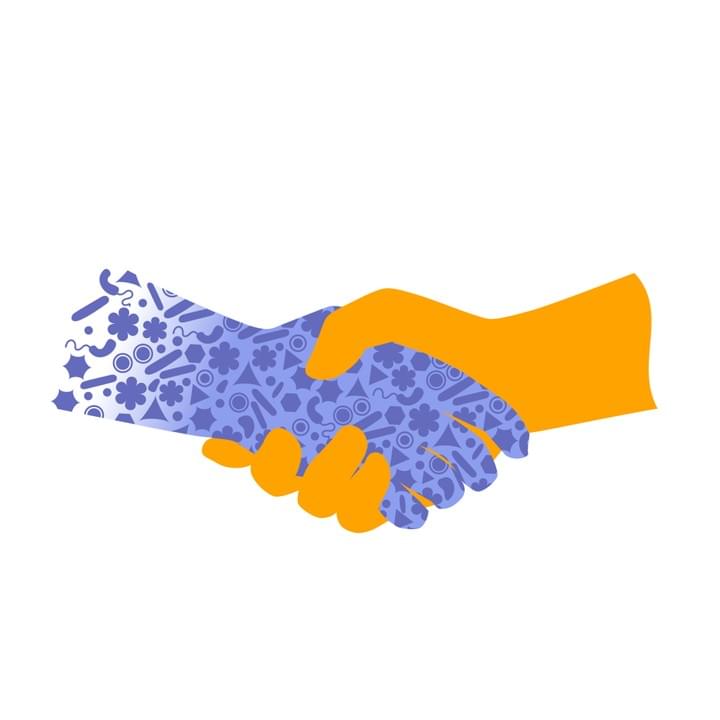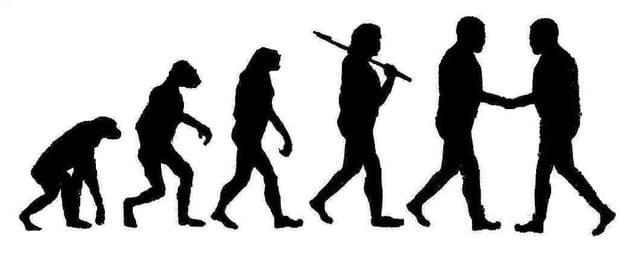

Athena Aktipis
Athena Aktipis
Author, Associate Professor & Podcaster
Author, Associate Professor & Podcaster
WHAT I DO
Hi, I'm Athena Aktipis, Associate Professor in the Department of Psychology at Arizona State University, Director of the Cooperative Futures Instititute, The Interdisciplinary Cooperation Initiative, and the The Cooperation Lab at ASU. I am also co-Director of The Cooperation Science Network and The Human Generosity Project. I study cooperation across systems from human sharing to cancer. I'm also the founder of Zombified Media and the host of the podcast, Zombified. When COVID-19 was on the verge of becoming a pandemic, I started the Cooperation in the Apocalypse project to better understand how crises affect cooperation, interdependence and other social behaviors.
I am the author of two books, A Field Guide to the Apocalypse: A mostly serious guide to surviving our wild times and The Cheating Cell: How evolution helps us understand and treat cancer. I also author a Substack titled Not For Peer Review where I share my thoughts on topics from AI to the origins of life.

LAB
I study cooperation across many systems in my lab including human sharing and microbial cooperation.

FIELD
I travel to fieldsites around the world to study how people cooperate especially during times of need.

MODELS
I use computational models to understand the fundamental principles underlying cooperation and test alternatives.

IMPACT
I apply my work to practical challenges from cancer prevention to developing new solutions to resource management problems.
Current projects
I search for general principles of cooperation that manifest across diverse systems. To learn more about the research in my lab, visit AktipisLab.org.
Rules of Life for Managing Collective Risks
The world is becoming riskier, but our societal tools for managing risk have not kept pace. As extreme events and misinformation proliferate, traditional systems—especially market-based insurance—are proving inadequate. This project draws on risk management strategies from living systems and small-scale societies to develop new approaches for avoiding tipping points and building resilience. We are also exploring the power of narrative and play as vital tools for making sense of uncertainty, building trust, and enabling collective action. Our goal is to equip communities, students, and researchers with adaptive, interdisciplinary strategies for navigating complex risks in a rapidly changing world. A large grant from The National Science Foundation that is funding this research and helping to support public engagement in collaboration with The Apocalypse Roadshow and other partners.
The Human Generosity Project
I study cooperation in humans, especially helping in times of need. I look at food sharing, resource transfers, shared work and other forms of cooperation using diverse methods including human laboratory experiments, anthropological fieldwork and computational modeling. I also apply these principles to practical problems including resource management and disaster recovery. You can learn more about these studies and more on The Human Generosity Project webpage. My book, A Field Guide to the Apocalypse: A mostly serious guide to surviving our wild times, explain how we can learn from small scale societies about how to manage risks of disasters through cooperation, community and playfulness.
Cancer and Multicellular Cooperation
Multicellular bodies are essentially societies of cells that must cooperate and coordinate to contribute most effectively to the fitness of the organism. Cancer represents a breakdown of this multicellular cooperation. In my lab we examine cancer through this lens using computational modeling and clinical collaborations. My work on this topic was covered in The New York Times article Cellular 'Cheaters' Give Rise to Cancer and it is the topic of my book from Princeton University Press, The Cheating Cell: How evolution helps us understand and treat cancer.
Cooperation and Conflict
I also study other systems that are governed by fundamental tensions between cooperation and conflict. This includes maternal-fetal conflict in microchimerism, a topic covered in a recent New York Times article A Pregnancy Souvenir: Cells That are Not Your Own based on our review paper, and the potential role of the microbiome in unhealthy eating behavior, also covered in The New York Times article Our Microbiome May Be Looking Out for Itself.
BIOGRAPHY
I am a cooperation theorist, theoretical evolutionary biologist, and cancer biologist working at the intersection of these fields.

Reed College
Psychology, BA
In 2002 I graduated from Reed College in Portland, OR with two Commendations for Academic Excellence and membership in the Phi Beta Kappa honor society.

University of Pennsylvania
Psychology, MA
Psychology, PhD
I received a Masters Degree in Psychology from University of Pennsylvania in 2004 and my PhD in 2008. The topic of my dissertation was computational models of the evolution of cooperation.

University of Arizona
Ecology and Evolutionary Biology, Post-doctoral Fellowship
From 2008 to 2011 I was a Post-doctoral Fellow in the laboratory of John Pepper at the University of Arizona in Tucson. I began applying cooperation theory and evolutionary principles to cancer during this time, focusing on dispersal theory and the evolution of multicellularity.

University of California San Francisco
Research Scientist
Co-founder Center for Evolution and Cancer (CEC)
Director of Human and Social Evolution, CEC
In 2011 I moved to UCSF to start the Center for Evolution and Cancer, the first center of its kind. During my time at UCSF, I began building my lab and evolution and cancer research program and continued my work on the evolution of cooperation.
Institute for Advanced Study, Berlin
Fellow
I was a Fellow at the Institute for Advanced Study in Berlin (also knows as the Wissenschaftskolleg or just 'Wiko') during the 2013-2014 academic year as part of a working group on Cancer Evolution. During this time my colleagues and I worked on fundamental questions about the nature of cancer and the role of evolution in shaping cancer progression and susceptibility.

Arizona State University
Associate Professor, Psychology
Director, Interdisciplinary Cooperation Initiative
Member, Center for Evolution and Medicine
In 2014 I moved to Arizona State University to the Department of Psychology. I collaborate with diverse researchers from many different departments and centers to study the general principles underlying cooperation and conflict across systems.
MEDIA
Coverage of my work in the news
by Madeleine Aitken
Cambridge Day
3.23.25
While researching cooperation in human societies, including how people deal with challenges and risks, cooperation theorist Athena Aktipis started thinking about the apocalypse... As the book’s first anniversary approaches, Aktipis speaks Thursday at the Harvard Science Center. [read more]
by Ron Charles
Washington Post
11.6.24
This is a weird, weirdly encouraging book from a scholar who understands the risks of volcanoes, killer robots, militarized pathogens, space aliens, nuclear weapons, wildfires and the greenhouse effect, but still she refuses to be terrified into inaction. Signing off, she writes, “Don’t fret. This is just the beginning.”
by RACHEL FELTMAN & ANAISSA RUIZ TEJADA
5.22.24According to Athena Aktipis, an associate professor in the Department of Psychology at Arizona State University, the folks most likely to survive and thrive in the wake of catastrophe would do a lot less hiding—and maybe a lot more goofing around.
by Jessica DuLong
CNN
9.11.24
Watch any zombie movie, and you’ll likely see people panicking and turning on each other to prevent the undead from snacking on their brains. But researchers recognize that such responses are merely myths.
In crises, most people actually respond with compassion, care and cooperation. Humans, it turns out, have been teaming up to deal with catastrophes since the early days of civilization.
by Erik English & Thomas Gaulkin
Bulletin of the Atomic Scientists10.30.2023
The article discusses using the metaphor of a zombie apocalypse to enhance community readiness for real disasters, such as pandemics or natural catastrophes, by making emergency preparedness more engaging and less stressful.
By Erin Blakemore
Washington Post3.21.20
This Washington Post review of my book, The Cheating Cell: How Evolution Help Us Understand and Treat Cancer, explains how my evolutionary approach to cancer offers an alternative to the war metaphor for treating cancer.
By Scott Seckel
ASU Now10.18.18
Four-day conference bridging science and the arts explores zombification to engage in potentially frightening aspects of the future.
by Rachel Feltman
Popular Science12.20.20
With the Human Generosity Project, Athena Aktipis wants to show that cooperation makes humans stronger.
By Leah Shaffer
Sapiens Magazine2.21.19
Generosity helps communities manage risk and cope with disasters. New research untangles the factors that lead people to help neighbors in need.
By Keridwen Cornelius
Phoenix Magazine4.15.19
Instead of battling cancer, some cactus breeds simply adapt. Arizona State University researchers wonder if human beings can do the same.

by Brian Mockenhaupt
High Country News
12.7.15
This article in High Country News covers our work on sharing in times of need as part of The Human Generosity Project, focusing on cooperation among ranchers in southern Arizona and New Mexico.
by George Johnson
New York Times
7.27.15
This New York Times article covers our review of cancer as cheating in multicellular cooperation.
by Carl Zimmer
New York Times
9.10.15This New York Times article is based on a review paper we published about microchimerism, maternal-fetal conflict and health.
by Carl Zimmer
New York Times8.14.14
Could microbes be manipulating our eating behavoir? This New York Times article covers our review of the potential mechanisms and evolutionary pressures that could lead to microbial manipulation.
by Brett Milano
Harvard Gazette
4.4.18
Cancer, with us since the dawn of cellular life, is a companion we may never be rid of, says Arizona State University evolutionary biologist Athena Aktipis. But a fresh look at the disease could bring new strategies for managing it, she told a Harvard audience on Wednesday, April 4th.
Writing for General Audiences
by Athena Aktipis & Coltan Scrivner
Scientific American
11.01.23The science behind why people enjoy engaging with scary things.
by Athena Aktipis
& Coltan Scrivener
Slate Magazine10.19.23
In 2011 the Centers for Disease Control and Prevention posted a disaster preparation guide called “Preparedness 101: Zombie Apocalypse.” The guide—a playful blog post on the CDC’s website—generated so much traffic that it crashed the server... read more
By Gissel Marquez-Alcaraz & Athena Aktipis
The Conversation1.31.23
How diet influences the conflict between cell cooperators and cheater.
by Athena Aktipis & Keith G. Tidball
Scientific American05.11.21
How community readiness and fostering collaborations among global health organizations may ensure a coordinated response to future outbreaks.
By Athena Aktipis
Slate Magazine4.20.17
This article discusses the origins of cancer and how it has been with us since the beginning of multicellular life.
A Field Guide to the Apocalypse
A mostly serious guide to surviving our wild times
"This feel-good book about the end of human existence comes just in time to remedy the winter doldrums... Aktipis is by turns witty, insightful, reassuring, silly, and always interesting."
—Booklist Starred Review, American Library Association
How evolution helps us understand and treat Cancer
"The one book to read for a true understanding
of cancer and its control."
—David Sloan Wilson, author of This View of Life
forthcoming books
My next book, Hijacked, is currently in production with Princeton University Press.

Hijacked
The New Science of Neural Manipulation and What It Means for Our Health, Happiness and Sense of Self
Princeton University Press (2026)
selected talks
Selected talks on cancer, cooperation and more
Keynote
Westmont College, Conversation on the Liberal Arts
November, 2023
How can we do a better job of educating the next generation in our apocalypt-ish times? Hear my Keynote about “Education in the Apocalypse: Teaching and Learning in Times of Uncertainty," at this excellent conference about Liberal Arts education.
Got A Minute, ASU
October, 2019The body is made up of trillions of cells that all have to work together in cooperation for us to survive and thrive.
Harvard Museums
April 4, 2018
Cancer, with us since the dawn of cellular life, is a companion we may never be rid of, says Arizona State University evolutionary biologist Athena Aktipis. But a fresh look at the disease could bring new strategies for managing it, she told a Harvard audience on Wednesday, April 4th.
TedX ASU
May 21, 2016
Throughout history, why have so many humans had the inherit need to be generous? Could generosity have something to do with the evolution of human societies? In her talk, Dr. Aktipis addresses the question of whether we help one another out of the goodness of our hearts or because we expect to get something back in return.
Exploratorium Museum
June 23, 2015
People all over the world share resources to make sure everybody gets what they need. However, sharing isn't unique to humans—many animal species have sharing systems, and even cells in multicellular organisms share resources for the good of both the cells and the whole organism. Can humans learn about sharing from the practices of cells and other organisms?
Wissenschaftskolleg zu Berlin - Institute for Advanced Study
April 2, 2014
Why haven't our bodies evolved to suppress cancer better? Why can't we cure cancer with modern medicine? Evolutionary theory and methods are now helping us answer these questions.
In this lecture, Dr. Aktipis describes how evolution is transforming our understanding of cancer.
Blog
On teaching, learning and doing science
September 13, 2018An interactive game theory activity for teaching the prisoner's dilemma. We encounter cheating...April 3, 2016Do you have what it takes to outcompete your neighbors, strategically cooperate take over the...March 24, 2016Do it yourself models of the evolution of cooperation. We've all been there. You've tried and...TEACHING
I teach in the Department of Psychology at ASU. My courses are cross-listed with Biology and other units.

The Science of Zombification
What is taking over your brain?
We are vulnerable to being neurally and behaviorally hijacked by things that are not us. For the purpose of this course, we define a zombie as an entity that is fully or partially under the control of another entity. This includes host-parasite interactions, autonomous technology, the influence of culture, and social influence/coercion in human interactions. From microbes hijacking behavior, to humans influencing each other, to our brains being taken over by social media, we discuss why zombification happens, why we are susceptible to it, and what we can do about it.
Next taught: Spring 2026
Undergraduate

Cooperation
Cooperation and conflict across life
This course covers fundamental principles of cooperation across systems in order to better understand human social behavior. We discuss basic principles of cooperation and conflict using frameworks from multiple disciplines including evolutionary biology, economics, behavioral ecology and anthropology.
Next taught: Spring 2026
Undergraduate

Cooperation
Humans: 30 trillion human cells. 30 trillion microbial cells
Humans are complex social creatures and we are inhabited by trillions of microbes that live on and in us. These microbes behave and interact with each other and us in many fascinating ways. In this course we will ask: How does our social behavior affect microbiome transmission? How does our microbiome affect our social behaviors? Also, we discuss how cooperation and conflict shape interactions both among microbes and also between microbes and hosts.
Next taught: TBD
Graduate

Communication for Scientists
Communicating with broader audiences through writing and more
Whether you are looking for a way of reaching the public or just wanting to build your academic communication skills , this class will help you up your communications game. Learn how to write more effectively, speak more effectively, leverage communication resources in your community and create a strong online presence. We also talk about emerging issues in science communication such as new platforms for publishing, data management and open science.
Next taught: Spring 2027
Undergraduate

Intro Evolutionary Psychology
How nature and nurture shape who we
What is human nature? How has it been shaped by our evolutionary history? How do ecological factors influence human behavior and the behavior of other species? This course takes an interdisciplinary approach to behavior, incorporating psychological, anthropological and cross-species perspectives in an exploration of what makes us who we are.
Next taught: TBD
Undergraduate

Microbiome and Social Behavior
Humans: 30 trillion human cells. 30 trillion microbial cells
Humans are complex social creatures and we are inhabited by trillions of microbes that live on and in us. These microbes behave and interact with each other and us in many fascinating ways. In this course we will ask: How does our social behavior affect microbiome transmission? How does our microbiome affect our social behaviors? Also, we discuss how cooperation and conflict shape interactions both among microbes and also between microbes and hosts.
Next taught: TBD
Graduate
PUBLICATIONS
Download my CV or click here for a list of select publications on my lab website
WORK WITH ME
Are you interested in working with me?

Undergraduate Students
Are you an ASU undergraduate interested in cooperation and conflict? Or zombies and the apocalypse?
Every semester, we accept a limited number of undergraduate students into the Cooperation Scholars Program (the undergraduate program of The Cooperation Science Network), which offers seminar-style discussion, research training and mentoring in cooperation science. We also accept several undergraduates to be part of our Z-team, a group that works with Channel Zed and the Zombified Podcast to communicate about science and medicine to broad audiences. Contact my lab manager, Cristina Baciu, for more information or to apply.
Graduate students
Are you interested in going to graduate school in social psychology or evolutionary biology?
If you are interested in working with me as a graduate student, please send me an email and include a description of your research interests and your CV.
Research Interns
Thinking about graduate school but not sure?
If you have experience successfully executing your own research projects and are interested in getting more research experience before graduate school, a research intern position in my lab could be right for you. Please send me an email and include a description of your research interests and your CV.
Post-doctoral fellows
Have you finished your PhD and want to do research in my lab?
If you are interested in working in my lab as a post-doctoral fellow, please send me an email and include a description of your research interests and your CV.
CONTACT
For inquiries about speaking engagements, please contact Akhil Jonnalagadda at the Princeton University Press speakers bureau.
Social Feed
Copyright 2016






